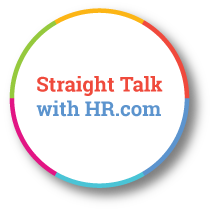"Coaching Data Is Emotional Data—That Should Guide Every Decision"
Exclusive interview with Dr. Serena Huang, Data with Serena
Posted on 05-05-2025, Read Time: 6 Min
Share:


 |
“The emergence of integrated human-AI coaching ecosystems is the trend I find most exciting,” says Dr. Serena Huang, Founder, Data with Serena and the author of The Inclusion Equation - Leveraging Data & AI for Organizational Diversity and Wellbeing. In an exclusive interview, Serena shares how coaching is evolving into a more inclusive, emotionally intelligent practice—highlighting the importance of peer support, trauma-informed approaches, ethical data use, and the potential of AI-human coaching ecosystems. Dr. Serena Huang is revolutionizing how organizations approach talent, wellbeing, and DEI through data and AI. A F100 AI consultant and career strategist, she is the founder of Data with Serena. |
Excerpts from the interview:
Q. What key changes are you observing in how organizations are approaching coaching and mentoring today?
Serena: It's no longer just about executives getting coaching and mentoring isn’t limited to senior leaders mentoring junior staff. We're seeing a rise in peer-to-peer and reverse mentoring programs. The benefits from coaching extend beyond executives, and as a result companies are expanding these programs. AI coaching platforms are playing a growing role in democratizing this access.Q. How can coaching programs better support emotional well-being, particularly in remote or hybrid work environments?
Serena: First, coaching programs need to stop treating well-being as a “bonus benefit” and start integrating it into the core coaching experience. In remote or hybrid environments, isolation, burnout, and disconnection are common. Coaches need to be trained not only in performance development but also in trauma-informed practices and mental health first-aid.We also need better cross-functional alignment on tech, since wellness app, career coaching platform, and AI tools may all be capturing signs of distress in different places at different times. Creating handoff points between coaching programs and mental health resources is crucial.
Q. In your view, how can organizations use data in coaching responsibly while keeping ethics and employee psychology in mind?
Serena: It starts with designing for unintended use cases. Employees will use coaching platforms for more than skill-building. We know now therapy and companionship are the number one use case for GenAI, for instance. Employees may talk about burnout, trauma, or toxic culture. So, if a tool collects data, you have to ask: what if someone’s in distress? Is there a protocol in place?Responsible use means putting privacy, consent, and transparency at the center. Employees should know what’s collected, how it’s used, and what happens if a red flag emerges. Data can be powerful when aggregated ethically. For example, using pulse survey sentiment or calendar analytics to flag team-level burnout without compromising individual privacy. But if used carelessly, it can create more fear than trust.
Coaching data is emotional data. That should guide every decision.
Q. What kind of support do mentors need to have meaningful conversations about well-being with their mentees?
Serena: Mentors aren’t therapists, but they are first listeners. And often, mentees will bring up well-being challenges in the context of “career questions” or “burnout at work.” To support mentors, we need to:- Train them to listen without fixing: reflecting and validating goes further than offering advice
- Equip them with clear referral/escalation pathways: so, they know how to connect mentees to HR, EAPs, or mental health resources when needed
- Normalize well-being check-ins as part of mentoring conversations, not an extra topic
Q. What’s one future trend in coaching and mentoring that excites you the most?
Serena: The emergence of integrated human-AI coaching ecosystems is the trend I find most exciting. Rather than viewing AI and human coaching as competing alternatives, organizations should create blended models that leverage the strengths of each approach.In these ecosystems, AI tools provide continuous support, data-driven insights, and scalable resources, while human coaches bring emotional intelligence, contextual judgment, and authentic connection. The AI component can identify patterns and potential intervention points, while human coaches provide the depth of understanding and relationship that technology cannot replicate.
What makes this trend particularly promising for me is how it democratizes coaching access while enhancing quality. This creates a more equitable development culture where everyone has access to appropriate support.
Error: No such template "/CustomCode/topleader/category"!

